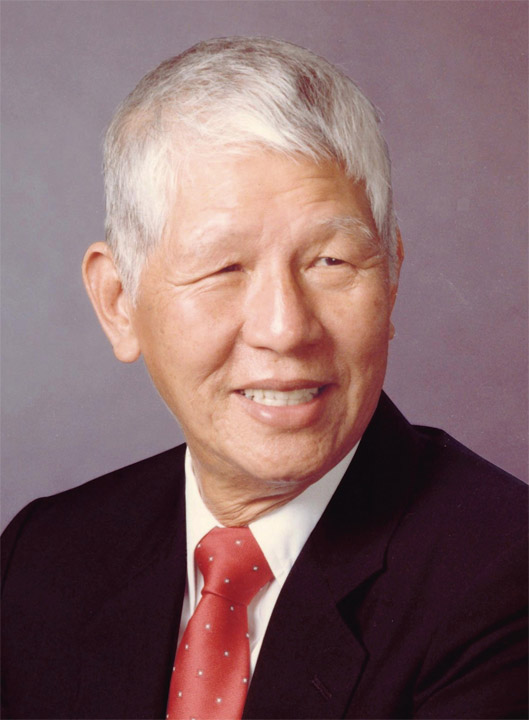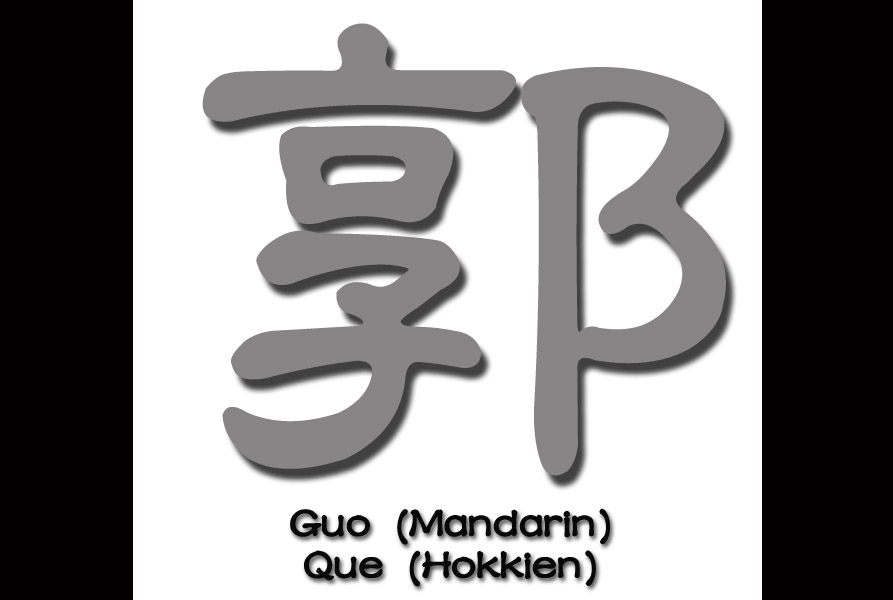First published in Tulay Fortnightly, Chinese-Filipino Digest 24, no. 3 (July 5-18, 2011): 5-6.
郭 (Guo in Mandarin, Que in Hokkien) is the 16th most common surname in China and also ranks 18th among Chinese surnames in the Philippines.
The surname originated from the names of two ancient states in China, headed by Ji Zhong (姬仲) and Ji Shu (姬叔), younger brothers of Emperor Zhou Wu Wang (周武王) (1066-1063 BC). One was named West Guo (西虢) and the other East Guo (東虢). Ji Zhong and Ji Shu were then dubbed as Guo Zhong (虢仲) and Guo Shu (虢叔), respectively, in relation to being the kings of the state of Guo (虢). Their heirs henceforth adopted Guo (虢) as their surname, and 郭 is actually a variation of 虢 with the same pronunciation (in Mandarin).
Unfortunately, both West Guo and East Guo were destroyed and occupied by other strong states in 687 BC and 767 BC, respectively.
There is a Chinese idiom, “唇齒相依” or “唇亡齒寒” that illustrates the close relationship between lips and teeth. Chun chi xiang yi (唇齒相依) means “lips and teeth defend each other” while chun wang chi han (唇亡齒寒) connotes “when lips die teeth feel the cold.”
These Chinese idioms connote inseparable or indivisible relationships. They actually originated from a historical incident in relation to an ancient state, North Guo, headed by an heir of Guo Shu by the name of Ji Xu (姬序).
In 655 BC, State Jin (晉) asked permission to pass State Yu (虞) to eliminate Yu’s close neighbor, Guo. But after destroying Guo, when returning, Jin also eliminated Yu.
The lesson relates to the close relationship between neighboring states, which is as intimate as lips to teeth. One cannot live without the other, when one is gone the other would hardly survive. State Yu committed a grave mistake by letting Jin pass its territory to eliminate its neighbor, State Guo, and ended up paying the price of its own destruction.
It is interesting that the surname Que (郭) among the Chinese in the Philippines has a unique origin in relation to the Arabs or Muslims in China. This can be seen from the fact that the Ques in the Philippines organized their family association with four other surnames, namely Ting (丁), Kim (金), Pe (白) and Ma (馬), all in Hokkien, to form the 菲律濱清真五姓宗親會, all these five surnames have Arab or Muslim ancestry in Fujian province. A special feature among them is that they have high nose bridges.

Among the famous Ques in the Philippines, we have Mariano Que, the founder and owner of Mercury Drug Store, Que Kok Pe (郭國鈀), owner of Que Pe Hardware, a prewar hardware store in Binondo, and Paulino Que, a famous antique collector.
Mariano Que’s family hailed from Guangdong province. Forced to leave their hometown at the height of political instability and extreme poverty as a result of the long drawn out Opium War, Que’s father tried to look for better prospects in the Philippines.
Unfortunately, he died soon after arriving here due to ill health. Mariano had to quit school and work to help support his family. From an assistant in a pharmaceutical company, Que took the opportunities provided by the end of the Pacific War in February 1945 to buy and sell merchandise and medicine from a pushcart. That lowly pushcart led to the first small Mercury Drug store on Bambang Street in Sta. Cruz, Manila. Today, the ubiquitous Mercury Drug Stores are found all over the country and the company is listed as one of the Top 200 Corporations in the country.
